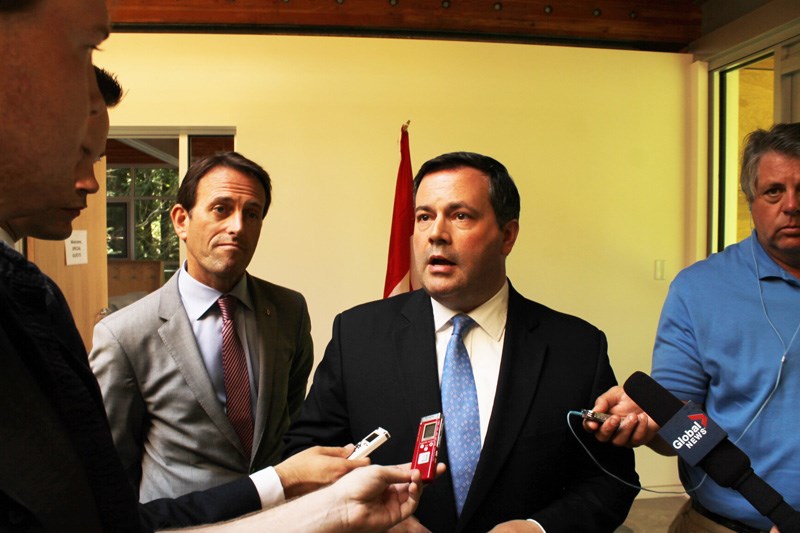Federal Minister of Employment and Social Development Jason Kenney visited the Cheakamus Centre in Squamish Wednesday, Aug. 6, to address changes to the federal Temporary Foreign Worker Program (TFWP).
The luncheon was also attended by local MP John Weston, members of the Squamish and Whistler Chambers of Commerce and regional business owners — including 30 from Squamish.
After a closed-door round-table meeting between the MPs and Cham-bers of Commerce representatives, Kenney addressed business owners concerned over the impacts of recent alterations to the TFWP.
“My armistice to employers is that they should redouble their efforts to hire Canadians,” he said. “We still have over 100,000 British Columbians who are out of work. We have a whole lot of Aboriginal folks who are not in the work force. We have high youth unemployment in B.C. The challenge is for employers to give those folks a crack before they go abroad.”
The TFWP has been observed more carefully in recent years. In April, three MacDonald’s outlets in Victoria were blacklisted for misusing the program. The current changes to TFWP were announced June 20. The aim of these changes is to pair unemployed Canadians with job openings before employers look abroad. Among changes to be phased in are:
• Barring employers from hiring low-wage temporary foreign workers in regions where the unemployment rate is above six per cent.
• A gradual capping to 10 per cent on the number of low-wage temporary foreign workers employers can hire per work site by 2016.
• An increase in the number of inspections: one in four employers will be inspected each year.
• An increase in the application fee employers must pay to request a foreign worker from $275 to $1,000 effective immediately.
• Fines of up to $100,000 for employers who abuse the program, starting in the fall.
Kenney added that there may be exceptions to the rules or “carving out of certain discrete, super-tight labour markets from the exclusion of low-skill workers from the food and hospitality retail sector in regions of unemployment over six per cent.
“We realize there are places, perhaps this is one, where you have this really hopping market surrounded by higher unemployment, so we are prepared on a case by case basis to look at situations like that,” he said.



